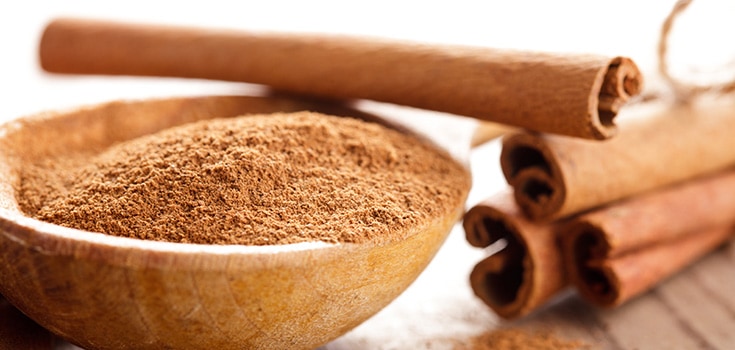4 Herbs for Diabetes Management

Over 26 million Americans have diabetes and more than one-hundred million have pre-diabetes or are at a heightened risk of developing the disease. The problem with how the majority of these people manage their disease is that they are strictly following the sole advice of their doctor or endocrinologist – always in reactionary mode, testing their blood sugar and taking the correct amount of corresponding insulin. There are numerous experts out there that say diabetes, and especially the preventable Type 2 diabetes, is not only naturally treatable but even reversible. There are many dietary and lifestyle changes that can be made, as well as many herbs for diabetes management.
Getting a handle on the disease involves far more than blood tests and insulin injections. Treating your diabetes (whether Type 1 or Type 2) almost requires a holistic approach. This means that what you eat, when you eat, and what you do to manage your blood sugar will need to change. Fortunately, there are herbs that can help.
1. Herbs for Diabetes – Cinnamon
Cinnamon is perhaps the most widely recognized herbal diabetes treatment. This common spice is believed to act as an insulin sensitizer. In one study, 60 adults with Type 2 diabetes who regularly took cinnamon found a drop of 18 to 29 percent in their average blood sugar levels. A quick survey of online message boards and blogs also reveals that many diabetics have experienced a similar drop simply by adding cinnamon to their daily regimen. Sprinkle it on an apple or add it into soup—there are many easy ways to use cinnamon for diabetes.
2. Fenugreek
A seed often used in Middle Eastern cooking and found in many curry dishes, fenugreek is also among the beneficial herbs for diabetes. According to Reader’s Digest, the seeds have been shown to reduce blood sugar, increase insulin sensitivity, and even reduce high cholesterol. A study found that 60 people who took 25 grams of the seed each day found “significant improvements in blood sugar and post-meal spikes.”
3. Ginseng
Ginseng is a root that’s easy to find in supplement form, or you can make a tincture of it. It is said to have both immune-boosting and disease-fighting benefits. Scientists say that the herb slows carbohydrate absorption, improves the body’s use of blood glucose, and increases insulin production in the pancreas. A University of Toronto study found that ginseng capsules can lower blood sugar by 15 to 20 percent.
4. Gymnema Sylvestre
Gymnema Sylvestre is native to India and has been connected to many metabolic disorders, including diabetes. It is said to work to reduce blood sugar by blocking “sugar binding sites” in the cells, not allowing the glucose to accumulate in the body. Other research also says it may increase insulin production.
Although complex, diabetes is a disease that is highly manageable. Understanding its complexities will help you understand the need to approach it from a holistic standpoint—employing “alternative” healing to manage and even help reverse it in the case of Type 2 diabetes. Try out some of these herbs for diabetes and see what works, and doesn’t work, for you.
Additional Sources:
Journal of Clinical Biochemistry and Nutrition

I will try these herbs for my, so called Diabetes 2, that is in control (average reading 5.6) with Diabex.
If herbs are the answer, then I have certainly something to offer to you. Will try it as from 2nd January 2013. Many thanks for your advice.
What about Berberine? I’ve been taking that with good results.
Can these be taken together or do you recommend trying them separately? I'd really like to introduce an herbal approach to my father for treating his diabetes. Would he need to stop his meds to use any of these or can they be used in conjunction with his normal routine?
Thank you!
which Gingseng ?
Panax ginseng or
Panax. quinquefolius?
American Ginseng is the best for diabetes.
You forgot the most important (single) natural herb on the planet –> Turmeric (curcumin). Based on decades of clinical studies from around the world, Turmeric and its active compound ‘Curcumin’ “may have the most health benefits of any (single) natural herb on the planet”. For more information, Google or go to: http//www.turmeric-plus.com.
Vitamins, iron and other nutrients are often needed by red blood
cells, so that if there is a deficiency of these vitamins, the body’s red blood cells are destroyed in the bloodstream due to the cells being of poor quality and fragile. Often, when an employer is made aware of an injury arising from exposure to a toxic chemical, the company will offer a settlement. The doctors will prescribe the treatment in different ways.
I didn't know that cinnamon is good for people with diabetes. Thanks
Yep, Elizabeth Renter is doing a great job with her posts….
Over 26 million Americans have diabetes and more than one-hundred million have pre-diabetes or are at a heightened risk of developing the disease.
I think herbal remedies are better than prescription drugs, as they actually heal the problem, rather than simply masking the symptoms. Herbs usually take longer to start showing results than drugs, but that is because healing takes a little longer than hiding symptoms.
Is it safe to take all of the aforementioned herbs together?
Can I take the herbs together?